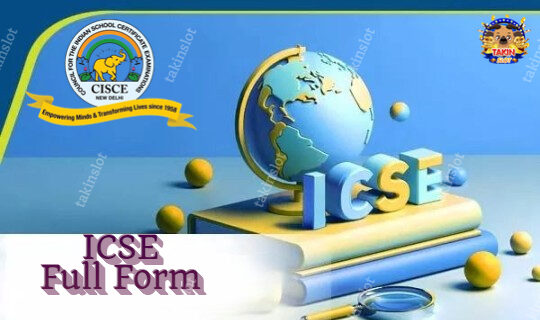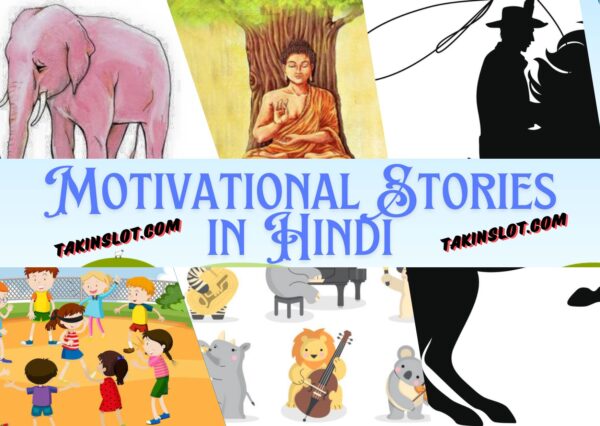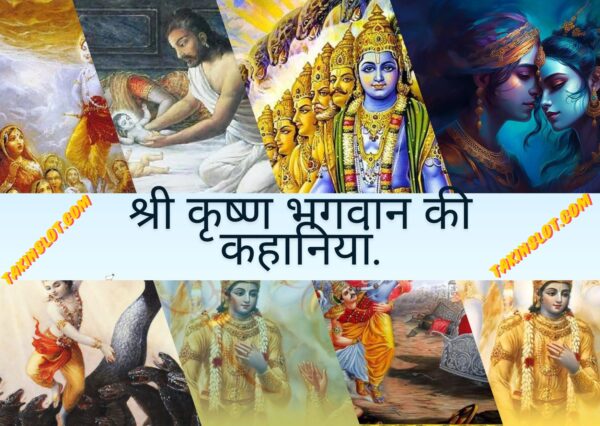ICSE Full Form: The Indian Certificate of Secondary Education (ICSE) is a curriculum designed for students in India from classes 1 to 12. Recognized internationally, ICSE is acknowledged in countries such as the UK and the US, as well as in several Indian states including Gujarat, Kerala, Maharashtra, and Tamil Nadu. The curriculum is formulated by the Council for the Indian School Certificate Examination (CISCE).
Understanding ICSE: ICSE Full Form
ICSE offers a comprehensive array of subjects aimed at providing students with a high standard of education. Unlike competitive examinations, ICSE prioritizes a stress-free learning environment. Students who pass the ICSE examination are granted admission to prestigious educational institutions. Moreover, they have the opportunity to improve their grades and undergo interviews for various career opportunities.
Distinctive Features: ICSE Full Form
ICSE examinations do not require self-study question papers. Instead, students are allocated dedicated time for pen and paper activities. This approach allows students to excel and showcase their abilities and skills without the pressure of competing with other examinations like JEE and NEET.
In essence, ICSE serves as a pathway for students to acquire quality education and pursue diverse career prospects, unencumbered by the constraints of conventional competitive examinations.
What is the ICSE Board?
The ICSE Board was established to provide private scholars with the opportunity to take the exam. Renowned for its production of successful students, the education system offered to ICSE students is of superior quality compared to similar boards like CBSE. The annual fee for ICSE is Rs. 6500, and it is fully funded by the private sector.
Comprising 103 schools from across India and Asia, the ICSE Board offers a diverse range of subjects, enabling students to explore various topics in depth. A crucial aspect of preparing for the ICSE Board is selecting the right combination of subjects that will benefit students at all stages of their academic journey. The guiding principle behind their preparation is: No Subject, No Problem.
What is the ICSE Syllabus?
The ICSE syllabus is rooted in the principles of Indian education, emphasizing simplicity and accessibility for all. It covers core subjects such as Mathematics, Science, Indian Culture, Life Skills, Regional Language, and English Language.
What about GCSE?
The General Certificate of Secondary Education (GCSE) is an internationally recognized qualification pursued by individuals aiming to study in English-medium schools in the United Kingdom. Students opting for the ICSE board also undertake GCSE exams.
Important Information for ICSE Board
ICSE exams are categorized into two types, each consisting of three parts. Each exam paper typically contains an average of 40 questions across five sections.
How does ICSE operate?
The ICSE Board offers quality education for students who have completed the tenth grade in a recognized government school. Some notable achievements in the Indian education sector attributed to ICSE include: The ICSE Council, overseen by the Indian Government, serves as the highest educational authority in India.
Established in 1934, the Council initially provided English education for students in Standard XI and XII in schools recognized by the Central Board of Secondary Education (CBSE). History of ICSE In 1968, the Council made a policy decision to introduce higher secondary schooling and the ICSE board of education.
Why choose ICSE?
Consistent academic performance Exposure to Cambridge’s A-Level Exam pattern The curriculum covers a broad range of subjects throughout the year, with exams typically including English Language, Literature, Science, Social Studies, and Mathematics. Additionally, topics like Global Health, Global Concerns, Media Studies, or Terrorism are included. Optional subjects such as Geography, History, Personal, Social & Health Education are also available.
Students can choose a second language as an optional subject, allowing them to learn another language such as Hindi, English, or their mother tongue. Various elective subjects are offered, allowing students to dedicate 6-8 hours per week to their chosen subjects.
Conclusion
If your goal is to attend a top private school in India (ICSE Full Form), pursuing an education through ICSE can facilitate achieving this objective. While other options may have drawbacks, opting for ICSE provides numerous advantages for learning in a private school setting.
FAQs about ICSE Full Form
What is ICSE and its significance in Indian education?
ICSE, or the Indian Certificate of Secondary Education, is a curriculum designed for students in India from classes 1 to 12. It is internationally recognized and acknowledged in countries like the UK, the US, as well as several Indian states. ICSE is formulated by the Council for the Indian School Certificate Examination (CISCE), providing students with a high standard of education and diverse career opportunities.
How does ICSE differ from other educational boards like CBSE?
ICSE stands out for its stress-free learning environment and comprehensive array of subjects. Unlike competitive examinations, ICSE prioritizes holistic education and skill development rather than intense competition. The curriculum is designed to offer a broad range of topics, allowing students to excel academically while exploring their interests.
What subjects are included in the ICSE syllabus?
The ICSE syllabus covers core subjects such as Mathematics, Science, Indian Culture, Life Skills, Regional Language, and English Language. It aims to provide students with a well-rounded education rooted in the principles of Indian education, emphasizing simplicity and accessibility for all learners.
How does ICSE prepare students for international qualifications like GCSE?
Students opting for the ICSE board also undertake GCSE exams, which are internationally recognized qualifications pursued by individuals aiming to study in English-medium schools in the United Kingdom. The ICSE curriculum prepares students for these exams by offering a rigorous academic curriculum and exposure to diverse subjects.
What are the key features of ICSE examinations?
ICSE examinations do not require self-study question papers, and students are allocated dedicated time for pen and paper activities. This approach allows students to showcase their abilities and skills without the pressure of competing with other examinations like JEE and NEET. Additionally, ICSE exams are categorized into two types, each consisting of three parts, with an average of 40 questions across five sections in each exam paper.




